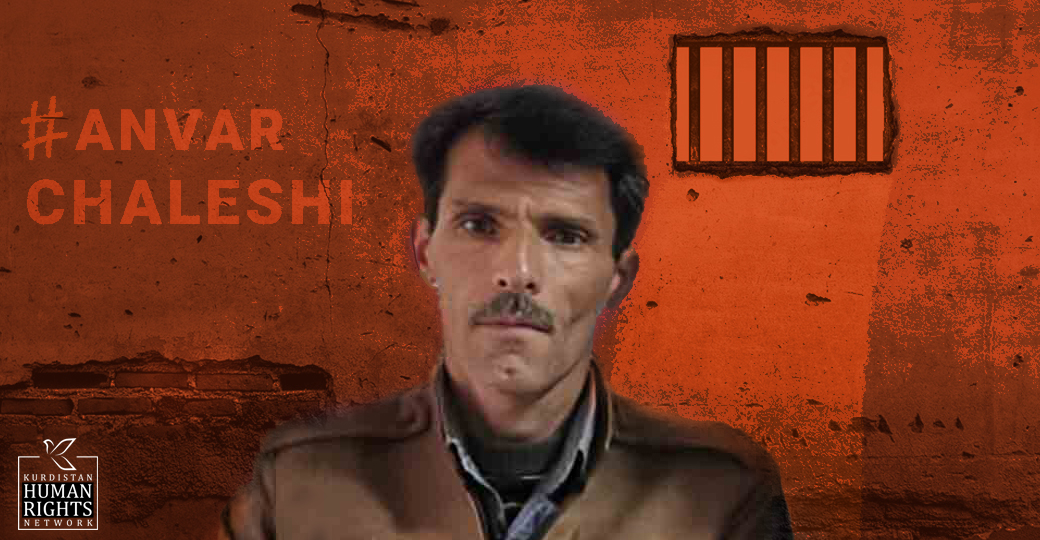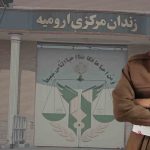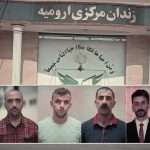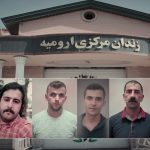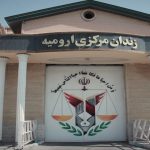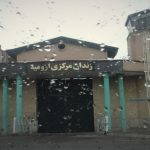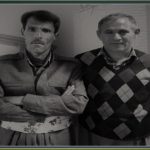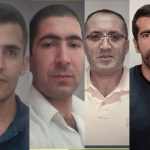Arrest
Anvar Chaleshi was arrested along with another civilian, Kamel Jabbarvand, by security forces on 2 December 2020 and taken to the detention centre of the Intelligence Organisation of the Islamic Revolutionary Guard Corps (IRGC) at Al-Mahdi base in Orumiyeh, West Azerbaijan Province.
Later in December of the same year, he was moved to Orumiyeh Central Prison.
Judicial Process
In October 2021, Branch One of the Islamic Revolutionary Court of Orumiyeh sentenced Chaleshi to seven years of imprisonment on charges of “acting against national security” through membership in the Democratic Party of Iranian Kurdistan (PDKI).
Current Status
Chaleshi is currently being held in Orumiyeh Central Prison. He has developed colon cancer, and his health condition is concerning due to the progression of the disease.
Despite the forensic medicine report stating he is unable to continue his imprisonment, he has been denied conditional release and medical furlough due to opposition from security agencies.
Additional Information
– On 2 December 2020, the Public Relations Office of the Hamzeh Seyyed al-Shohada Base of the Ground Forces of the Islamic Revolutionary Guard Corps (IRGC) announced in a statement the arrest of three armed opponents of the government in West Azerbaijan Province. The individuals, whose names were not mentioned, were described as “anti-revolutionary elements and mercenaries of global arrogance” who intended to carry out “terrorist activities.” Given the timing, location, and allegations, it appears that the arrested individuals in question were Anvar Chaleshi, Kamel Jabbarvand, and Musa Alousi.
– On 22 September 2021, together with other prisoners in the political ward of Orumiyeh Prison, they staged a sit-in protest against the lack of medical attention for sick prisoners and refused to accept their food rations. The protest ended the next day following the prison authorities’ promise of improvements.
– In May 2024, he was transferred to Khomeini Hospital in Orumiyeh due to his critical health condition. However, due to the opposition of the Intelligence Organisation of the Islamic Revolutionary Guard Corps (IRGC) to medical furlough, he was held in the hospital with handcuffs and shackles without starting the treatment process.
– Since his arrest, he has only been granted furlough once.
Notes:
1. The Democratic Party of Iranian Kurdistan (PDKI) was founded on 16 August 1945, with the aim of gaining autonomy for Iranian Kurdistan. According to the party’s charter, this political organisation, grounded in the “nationalist ideas and organizational structure of the Society for Kurdish Resurrection (KJK) and with a realistic and contemporary approach”, emerged as a modern entity in the political arena. KJK was the founder of the Republic of Kurdistan (22 January 1946 – 15 December 1946) in Mahabad. The republic lasted only 11 months, ending with an attack by the Iranian army, which executed its leaders, including Qazi Muhammad, the party leader and President of Kurdistan.
PDKI went through a period of armed struggle in the late 1960s, marked by internal party disputes, and ultimately, re-emerged as a political party on the eve of the 1979 revolution. Two of its leaders, Abdul Rahman Ghassemlou and Sadegh Sharafkandi, were assassinated by the Islamic Republic of Iran in Europe in 1989 and 1992, respectively. In 2006, due to heightened internal conflicts, the party split into two factions: the Democratic Party of Iranian Kurdistan and the Kurdistan Democratic Party (HDK). These two factions eventually announced their reunification on 22 August 2022, after 15 years of separation.
The party has declared its ultimate goal as “the establishment of a democratic-socialist society” and its strategic slogan as “securing the rights of the Kurdish people in Iranian Kurdistan within the framework of a federal democratic system in Iran”. The main headquarters of the PDKI is in Erbil, Kurdistan Region of Iraq.

